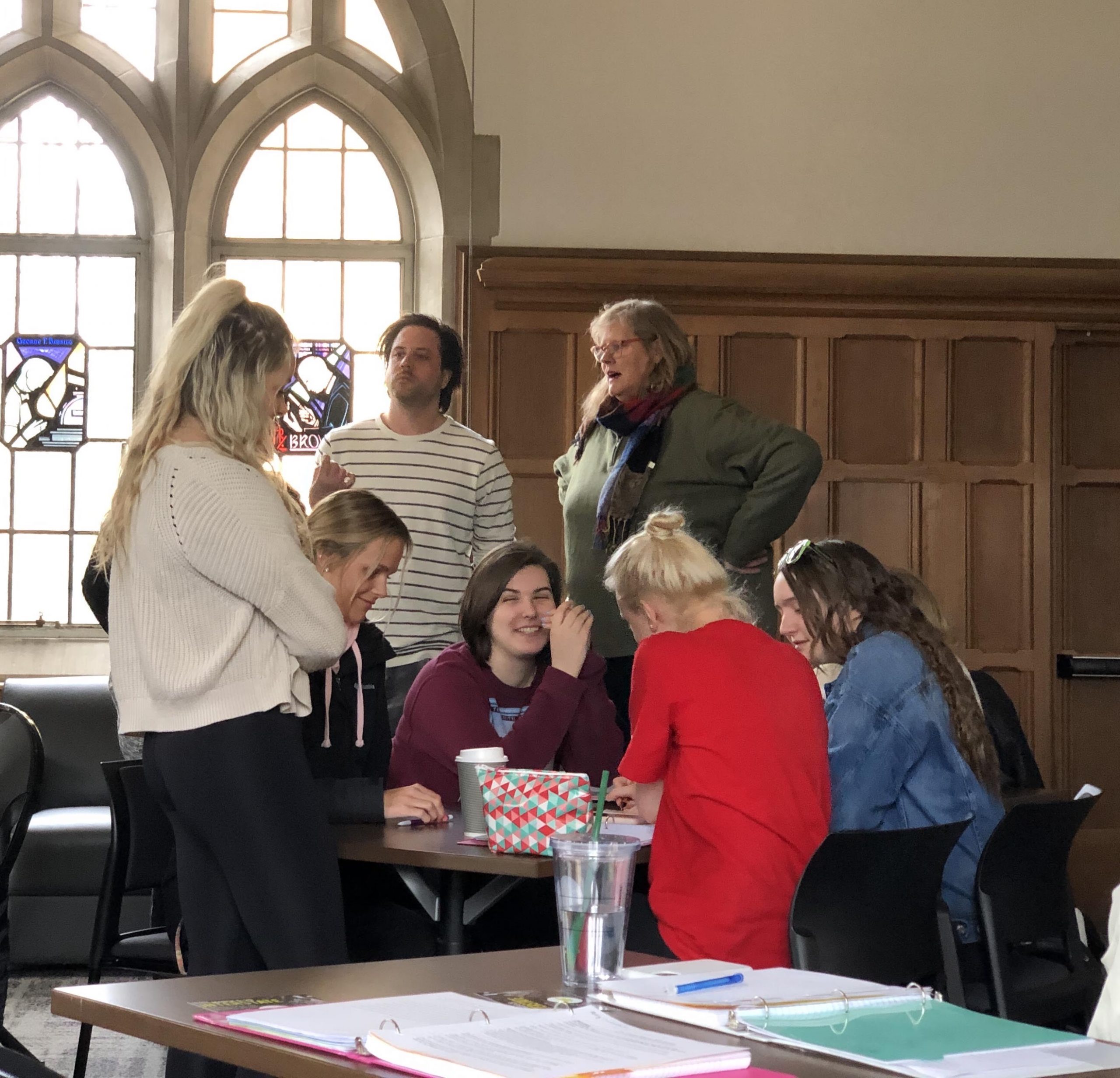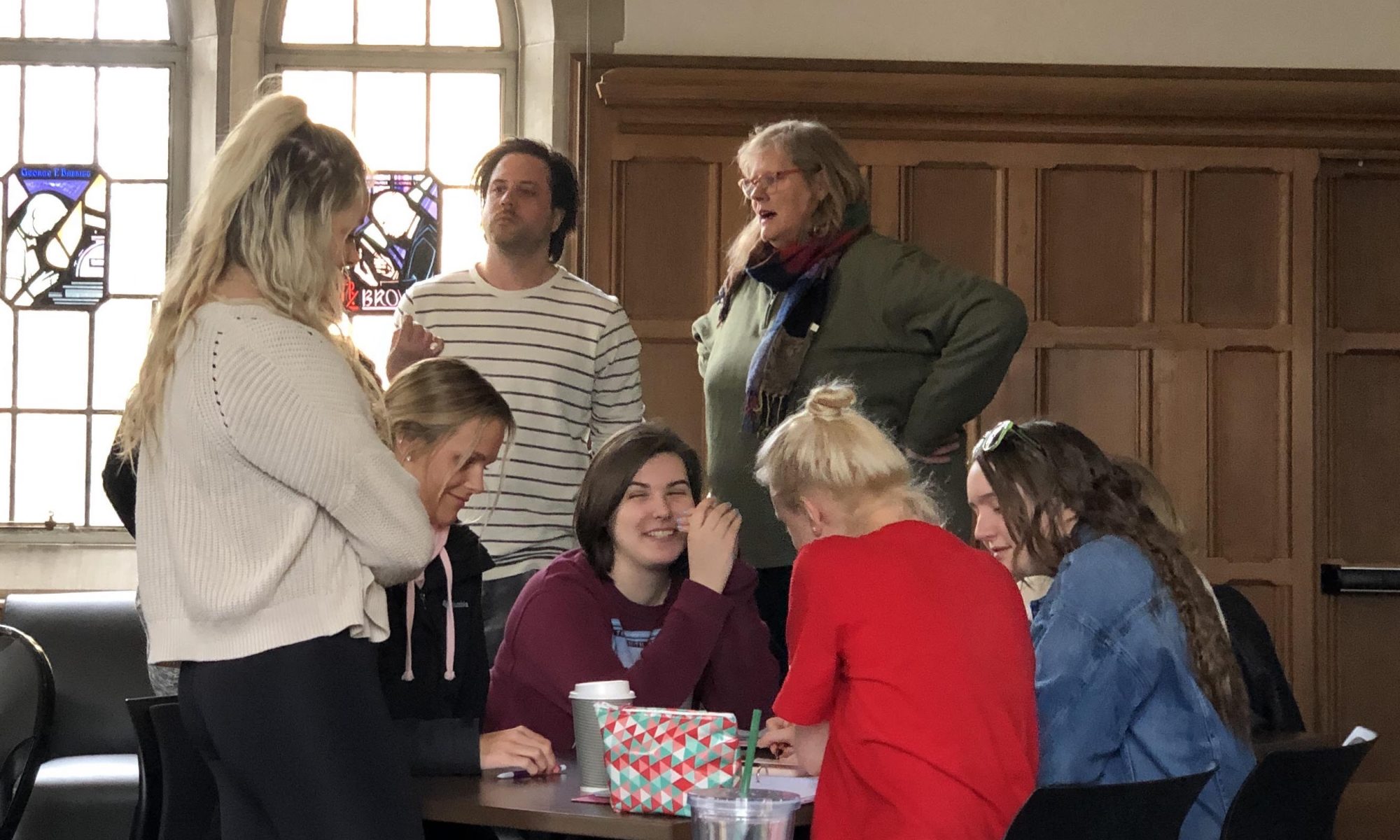
Lucas Erickson (left, striped shirt) and Wendy Knox (right, green shirt) work with St. Thomas students from English and theater classes Tuesday, March 10. Erickson started the “On Stage” program to work with students in non-theater classes. (Justin Amaker/TommieMedia)
A Twin Cities-based program, “On Stage,” started by Lucas Erickson three years ago, aims to get more college students involved in live theater and make it relevant to younger audiences.
By going into classes, from kindergarten all the way to college, Erickson and his coworkers Maria Asp and Wendy Knox show students plays “that deal with a variety of social and political issues.”
“We’re trying to make (theater) more accessible by bringing it out of the theater and into classes,” Erickson said.
Erickson, Asp and Knox visit classes “where there’s not a whole lot of art,” like sociology, political science and communication and bring more creativity into those classes.
“It’s kind of fun going to non-theater classes,” Knox said. “It makes them realize the power of theater as a forum for wrestling with issues.”
Erickson, who is On Stage’s program manager, graduated from the University of Colorado with a degree in theater, and recently finished his Masters of Professional Studies in Arts and Cultural Leadership at the University of Minnesota, according to the On Stage website.
Asp works at Children’s Theatre Company and Knox works at Frank Theater in Minneapolis. Asp and Knox promote musicals and shows with Erickson in their free time.
“We’re both really invested in getting people into the theater,” Asp said. “We have to get people excited to come out, because we don’t have those large budgets that some of the bigger institutions do.”
Erickson, Asp and Knox visited a group of students from St. Thomas professors Amy Muse and JoAnn Holonbek’s English and theater classes Tuesday, March 10 to promote “Interstate,” a musical focusing on the queer and transgender community, and “The Convert,” which shows various customs, beliefs and origins of religions. They do not receive any incentive from the theaters producing those shows to market them.
They had students perform various skits and exercises, such as having students list songs they could sing from memory and singing those songs.
“It’s a way for them to laugh and for them to build more of a trust with us and each other,” Erickson said.
The trio also visited Liz Wilkinson’s “Foundations of Women, Gender and Sexuality Studies” class March 10, and was set to visit Chris Santiago’s English classes on March 20 before the university transitioned to online classes.
Wilkinson enjoyed the connection between her class and “Interstate.”
“I’m always interested in getting students to connect the material that we are covering in the classroom with real-life things outside of the classroom,” Wilkinson said. “Theatre is a great way to get students outside of the classroom.”
The three hope that the students they visit simply, “get to the theater.”
“You can connect with characters that may not represent you, but that there’s things inside the plays that we can all relate to,” Asp said.
Justin Amaker can be reached at justin.amaker@stthomas.edu.



